Alex Garland’s Films as a Writer, Ranked
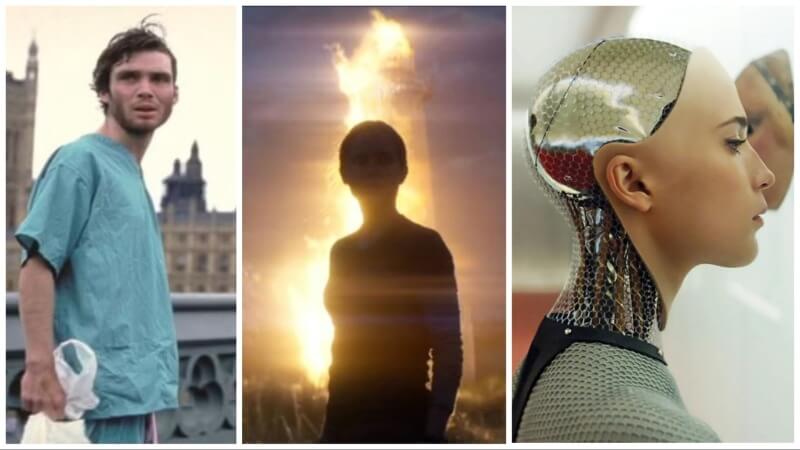
Alex Garland may be one of the most consistently working writers in the film industry. He got his start as a novelist with The Beach in 1996, which was hailed as one of the first significant “gen X novels” and turned him into one of the most famous literary voices of his generation. But in the years since his screenwriting debut in 2002, Garland has carved out a unique filmography as a writer.
Garland is a writer who has consistently ridden the wave of what is trending in entertainment. He launched his career by breathing new life into the zombie film with the low-budget but striking 28 Days Later. 10 years later, when comic book films were taking over Hollywood, he wrote the second film adaptation of Dredd. Garland’s directorial debut Ex Machina was distributed by A24 in the indie studio’s second year of existence, which led to a long partnership between the two that eventually resulted in Civil War, A24’s highest-grossing film to date. And now, as legacy sequels dominate studios’ release lineups, he and original director Danny Boyle are reuniting for 28 Years Later.
With 28 Years Later releasing (a mere) 23 years after Garland’s screenwriting career began, the writer-director’s filmography has reached a reflective point. Especially because he has stated that he intends to primarily refocus on his original craft of writing (with several 28 Years Later sequels already written) rather than directing, Garland’s career is perhaps best evaluated as a sum of the works he wrote. So let’s consider each of those screenplays, and the films they produced.
9. Men (2022)
Director: Alex Garland

Are men actually … bad? That’s more or less the only idea Garland’s Men brings to the table. Although the film’s first act is fairly excellent, (and looks beautiful) and Jessie Buckley gives her all to the thin story, Men cannot be saved. It is a film about an idea, lacking in a story or any development on the implications or nuances of its claims. Although a film about the predatory and toxic nature of men, and how their unchecked hostility is passed down through generations, sounds perfectly workable — Men is not that film. By the time Rory Kinnear is giving birth to several smaller Rory Kinnears through a birth canal in his back, I started shaking my head in the theater. Men feels like a not-well thought out flash fiction story stretched into a film shot in a beautiful landscape.
8. Dredd (2012)
Director: Pete Travis
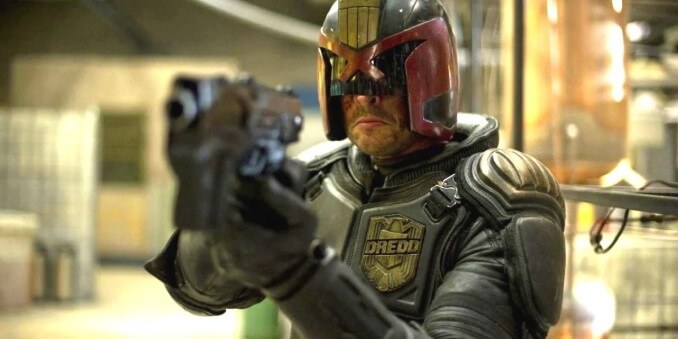
Garland’s adaptation of the 2000 AD comic strip character Judge Dredd came out in 2012 — the same year as The Avengers, The Dark Knight Rises and The Amazing Spider-Man. While superheroes (and another wave of 3D blockbusters) were becoming all the rage, Dredd’s hard-R rated, action-packed take on the violent harbinger of justice in a world of chaos was a major break from other comic book adaptations at the time. With its highly saturated color palette and non-stop bloodbaths, Dredd certainly sets itself apart. But the film is also a bit of a mess with its vague world building and lack of direction in its story. Garland was also working in an additional role, although uncredited, because he stepped in as director during parts of the shoot and the editing process after creative disagreements with director Pete Travis. Unfortunately Dredd’s chaotic production can be felt in the end product that, while not a total loss, feels like a let down of its potential (Karl Urban is innocent, though).
7. Warfare (2025)
Directors: Alex Garland, Ray Mendoza
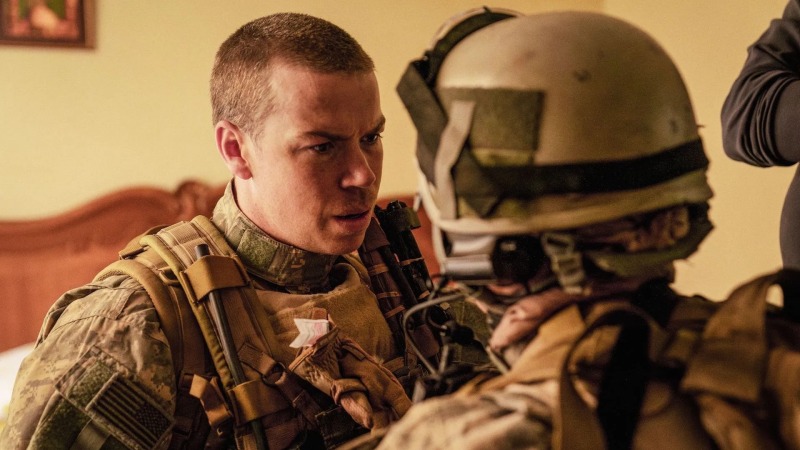
Garland said he was going to step back as a director after Civil War to focus on writing. Then he decided to co-direct and co-write a film with U.S. Navy SEAL veteran Ray Mendoza to show what our American tax dollars were put to use for during the Iraq War. The result? A tight, tension-fueled, 90 minute film whose cast is made up of former Twitter It boys of the month. Warfare’s real-time execution of the saga of a group of trapped soldiers is visceral and often impressive. But the film’s messaging gets complicated. Sometimes Warfare suggests a progressive stance: that the American came into small towns in the Middle East, destroyed buildings, terrorized locals, and left their blood behind. But then the film ends in a touching tribute to all the real-life soldiers who did not want their faces and identities attached to the film. What does Warfare ultimately want to say about, well, warfare? That it’s violent? That it’s fleeting? That it’s enacted by real people? I agree with all those ideas; I’m just not sure if they’re enough to carry the film.
6. Never Let Me Go (2010)
Director: Mark Romanek
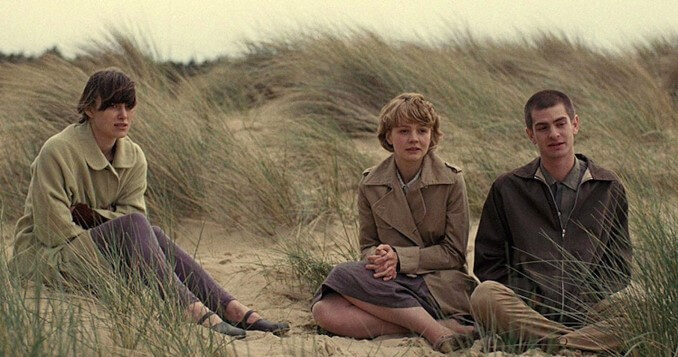
Kazuro Ishiguro’s heartbreaking novel was also adapted by Garland into a heartbreaking film in 2010. Starring a still-in-their-youth trifecta of Carey Mulligan, Kiera Knightly, and Andrew Garfield, Never Let Me Go is a soft and tragic tale of young people doomed to die. The main trio turns in some wonderfully sad performances (Garfield is a standout, this was the same year as The Social Network and it really shows off his range) and the rest of the cast is populated with under the radar powerhouse performers like Domhnall Gleesen, Sally Hawkins, and Andrea Riseborough. But even if you haven’t read the source material, there is a sense that Never Let Me Go never lets its characters truly grapple with the idea that they were born to live short lives so people they never meet will live longer ones. The world building of the dystopian science fiction tale feels underdeveloped and underutilized, like there were so many potentially powerful moments and scenes that never came to be. But even with its flaws, Never Let Me Go can still devastate a viewer (that last scene especially).
5. Civil War (2024)
Director: Alex Garland
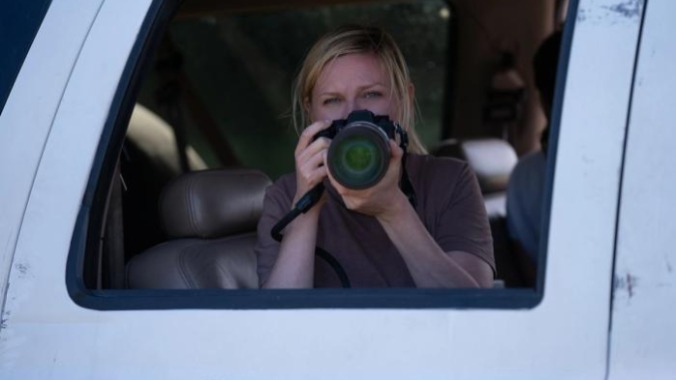
Civil War is a mess, but it’s the kind of mess I can’t help but stand behind. The British filmmaker decided to take on the morass that is America’s political future in the story of a group of journalists traveling across a war-torn United States. Garland described this as his love letter to journalism, which is a bit insulting (no journalist character writes a single word and it’s unclear in the film if any of the photos taken actually get circulated to other people). But when Civil War works, it absolutely works. The film is best watched as a series of vignettes. Stand-out scenes include a tense confrontation with an especially scary Jesse Plemons and the film’s climatic siege on the White House, which is some of Garland’s best directorial work of his career. But the best scene for showing what works about Civil War is when the characters find themselves in between a Christmas-decorated sniper battle between two sides who don’t really know and don’t really care who they’re trying to kill. That is what Civil War is really about: how meaning and politics get lost in violence and the fight to keep asking “why?” when the rest of the world seems tired of thinking about questions. There’s a really excellent film buried underneath all the thin characters and nonsensical political alignments (if America is heading into a civil war, there is no world where California and Texas are banding together).
4. Sunshine (2007)
Director: Danny Boyle
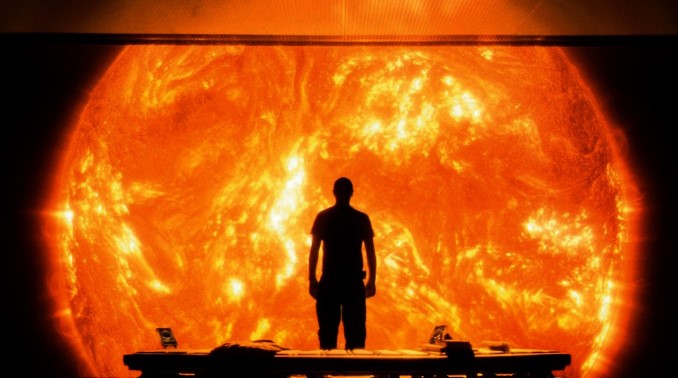
In Sunshine, the only way to save the Earth is by dropping a bomb into the sun. If that doesn’t sound cool to you, how about the fact that this film is effectively a slasher horror film on a spaceship? And if that still doesn’t sound cool, what about that it’s actually a slasher horror film on two spaceships? In all likelihood, either Sunshine works completely for you, or not at all. But if you tune-in to Garland’s ensemble space horror then you are going to have a fun ride. Led by an always great Cillian Murphy and featuring a star-studded cast with Chris Evans, Michelle Yeoh, Rose Byrne, Benedict Wong, and a crazy evil Mark Strong: Sunshine scratches an itch in an original science fiction film lover’s brain. The film’s production and costume design are wonderfully tactile and it features some genius moments of filmmaking (the flashing photos as the crew enters the abandoned ship made me jump out of my seat during my first watch). There is beauty in Sunshine’s confidence and world building. It feels like a film that would end up stranded forever in development hell, making it a miracle that we get to watch it. Although it’s not a perfect film, we should feel fortunate that something like Sunshine got made.
3. Ex Machina (2014)
Director: Alex Garland
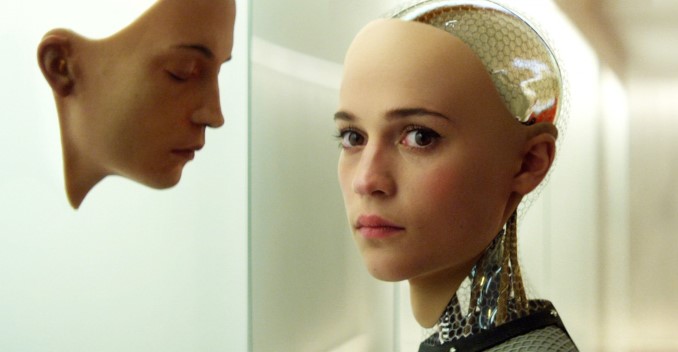
After working as a writer for decades, Garland’s directorial debut truly established him as a creative force to be reckoned with. The tightly constructed science fiction drama thriller Ex Machina is one of the great directorial debuts of the past 10 years The film operates almost like a play, focusing on the relationships and shifting understandings between its human and android characters in their confined and remote environment. Domhnall Gleeson, Oscar Isaac, and Alicia Vikander give some of the best performances of all of their careers, and you could make an argument that Vikander deserved an Oscar nomination for her work. Ex Machina tackles the cult of personality and delusions of control developed by tech billionaires and the hollow reasons why they seek to recreate consciousness itself (Garland would jump further down this ideological rabbit hole in his also excellent TV series Devs). The film would be good even if it was just about the mind games between its characters. But Ex Machina is also a film without fat, where every passing glance and stray comment means something. The way the film tackles gender relations and how men underestimate and sexualize the androids — despite them not actually inhabiting a gender role, yet they are modeled to be beautiful — adds an added richness to the text. Ex Machina is a great film that only gets better the more you think and read about it. If there isn’t a moment that sends a chill down your spine, you’re not watching closely enough.
2. 28 Days Later (2002)
Director: Danny Boyle
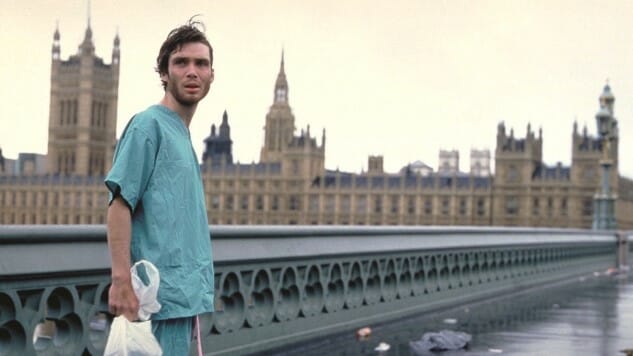
The first official team up between Danny Boyle and Alex Garland (Boyle directed an adaptation of Garland’s novel The Beach in 2000), 28 Days Later may be one of the most important British films of the 21st century. The film is a low-budget horror marvel; the opening scene alone is enough to make you jump out of your skin. It revitalized the zombie film genre and launched the career of the very talented Naomie Harris, while bringing actors like Christopher Eccleston and Brendan Gleeson to greater notoriety. But it’s Cillian Murphy’s starring role that announced him as one of best actors of his generation. 28 Days Later’s low-budget only adds to its horror: Seeing the empty streets of London shot on a low-res digital camera makes the film feel even more real, like glimpsing into an alternate reality. The film also created some of the scariest (technically not undead) zombies ever put to screen, fueled by a rage virus that wants not to eat people but only to attack and kill. But inside a terrifying zombie film is also a terrifying horror film about the depravity of humans without structure or law. You can watch 28 Days Later as a horror film, a political allegory, or a well-acted character drama-thriller. Especially as a screenwriting debut, 28 Days Later is a remarkably confident and well developed film that was so smart it brought new life to a century old idea.
1. Annihilation (2018)
Director: Alex Garland
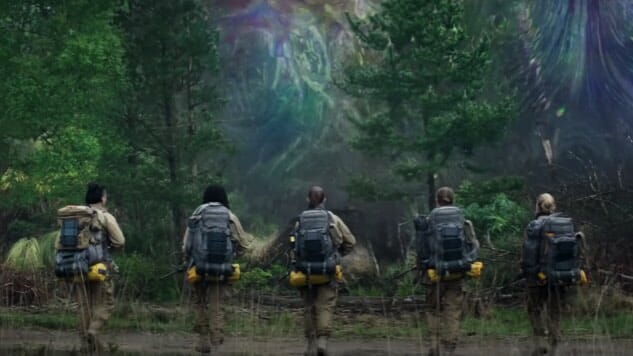
Alex Garland described Annihilation as not a straight adaptation of Jeff VanderMeer’s novel but instead as an adaptation of his memory of the book. The end result is one of the greatest film adaptations of a book in recent memory, and possibly a film that is even better than its source material. Annihilation follows a biology professor and soldier (played by a very underrated Natalie Portman) as she joins an expedition into a strange land where her husband (an also wonderful Oscar Isaac) was lost for a year. He returned changed, acting like a stranger in his own skin. What follows is an almost spiritual journey into the horror of the lush and alien landscape. Annihilation is at times one of Garland’s scariest works: The mutated bear, containing a piece of a woman during the last second she was alive while being mauled to death, may be the most horrifying thing I can ever imagine. But what makes Annihilation so special is that it isn’t always horrifying. The film is a metaphor about trauma and the way it fundamentally shapes and changes every single part of a person. Each character in Annihilation transforms in a different way. Some accept the refraction and become one with the alien landscape. Some fight against it. But everyone is touched by it. The film asks: Do we become fundamentally different people when confronted by trauma? Or just changed versions of the same self? And Garland is smart and skilled enough to let the audience answer for themselves. Some people find Annihilation opaque, with its doppelgangers and otherworldly transformations. But after rewatching the film several times, I am convinced it is one of the best films of the past decade. Anyone who has been touched by a traumatic event can see a version of themselves and their journey in the text. The film itself feels like a living, breathing thing. Who knows if we are our original selves, Annihilation says. But we are the ones who live on.
Leila Jordan is a writer and former jigsaw puzzle world record holder. Her work has appeared in Paste Magazine, the LA Times, Indiewire, Business Insider, Entertainment Weekly, Gold Derby, TheWrap, FOX Digital, The Spool, and Awards Radar. To talk about all things movies, TV, and useless trivia you can find her @galaxyleila






































